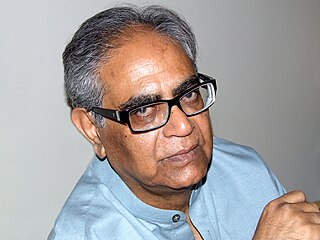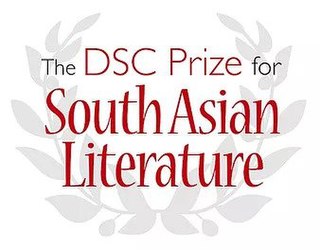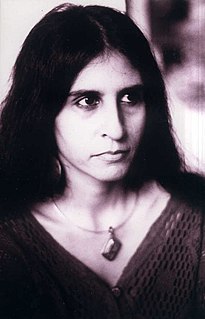Related Research Articles
Pakistani literature is a distinct literature that gradually came to be defined after Pakistan gained nationhood status in 1947, emerging out of literary traditions of the South Asia. The shared tradition of Urdu literature and English literature of British India was inherited by the new state. Over a big time of period a body of literature unique to Pakistan has emerged in nearly all major Pakistani languages, including Urdu, English, Punjabi, Seraiki, Balochi, Pushto and Sindhi.

Faiz Ahmad Faiz was a Pakistani poet, and author in Urdu and Punjabi language. He was one of the most celebrated writers of the Urdu language in Pakistan. Outside literature, he has been described as "a man of wide experience" having been a teacher, an army officer, a journalist, a trade unionist and a broadcaster.

Chang-rae Lee is a Korean-American novelist and a professor of creative writing at Stanford University. He was previously Professor of Creative Writing at Princeton and director of Princeton's Program in Creative Writing.
The Akhil Bhartiya Pragatishil Lekhak Sangh or Anjuman Tarraqi Pasand Mussanafin-e-Hind or Progressive Writers' Movement of India or Progressive Writers' Association was a progressive literary movement in pre-partition British India. Some branches of this writers' group existed around the world besides in India and Pakistan.

Iftikhar Hussain Arif, is an Urdu poet, scholar and littérateur from Pakistan. His style is romantic Urdu poetry. He has headed the Pakistan Academy of Letters and the National Language Authority. He has received the Hilal-e-Imtiaz, Sitara-e-Imtiaz and Presidential Pride of Performance awards, which are the highest literary awards given by the Government of Pakistan.
Tabish Khair is an Indian English author and associate professor in the Department of English, University of Aarhus, Denmark. His books include Babu Fictions (2001), The Bus Stopped (2004), which was shortlisted for the Encore Award (UK) and The Thing About Thugs (2010), which has been shortlisted for a number of prizes, including the DSC Prize for South Asian Literature and the Man Asian Literary Prize. His poem Birds of North Europe won first prize in the sixth Poetry Society All India Poetry Competition held in 1995.
The publishing industry in Pakistan is hampered both by a low literacy rate (65%).

For the author of Gentleman Bismillah, see Colonel Ashfaq Hussain

Nadeem Aslam FRSL is a prize-winning British Pakistani novelist. His debut novel, Season of the Rainbirds, won the Betty Trask and the Author's Club First Novel Award. His critically acclaimed second novel Maps for Lost Lovers won Encore Award and Kiriyama Prize; it was shortlisted for International Dublin Literary Award, among others. Colm Tóibín described him as "one of the most exciting and serious British novelists writing now".

Mohsin Hamid is a British Pakistani novelist, writer and brand consultant. His novels are Moth Smoke (2000), The Reluctant Fundamentalist (2007), How to Get Filthy Rich in Rising Asia (2013), and Exit West (2017).

Mohammed Hanif is a British Pakistani writer and journalist who writes a monthly opinion piece in The New York Times.
Musharraf Ali Farooqi is a Pakistani writer, translator, and storyteller. Farooqi was among the five writers shortlisted for Asia's most prestigious literary prize in 2012. In addition to his fiction and translation projects, he is working on establishing an Urdu language publishing program specializing in children's literature and classics. He founded the publishing house KITAB (2012), launched the online Urdu Thesaurus (2016), and designed the interactive storytelling and reading initiative STORYKIT Program (2016). These three projects have been integrated in an activity-based learning program for children.

The DSC Prize for South Asian Literature is an international literary prize awarded annually to writers of any ethnicity or nationality writing about South Asia themes such as culture, politics, history, or people. It is for an original full-length novel written in English, or translated into English. The award is for novels published in the year preceding the judging of the prize. The winner receives 25,000 USD. The DSC Prize was instituted by Surina Narula and Manhad Narula in 2010 and its vision is to showcase and reward the best writing about the South Asian region and bring it to a global audience.

Uzma Aslam Khan is a Pakistani writer. Her five novels include Trespassing (2003), The Geometry of God (2008), Thinner Than Skin (2012) and The Miraculous True History of Nomi Ali (2019).
Karachi Literature Festival (KLF) is an annual international literary festival held in Karachi, Pakistan. It is the first festival of its kind in Pakistan. It is one of the world's youngest and fastest growing literary festivals. Till 2019, ten festivals have been held.
Pakistani English literature refers to English literature that has been developed and evolved in Pakistan, as well as by members of the Pakistani diaspora who write in the English language. English is one of the official languages of Pakistan and has a history going back to the British colonial rule in South Asia ; the national dialect spoken in the country is known as Pakistani English. Today, it occupies an important and integral part in modern Pakistani literature. Dr. Alamgir Hashmi introduced the term "Pakistani Literature [originally written] in English" with his "Preface" to his pioneering book Pakistani Literature: The Contemporary English Writers as well as through his other scholarly work and the seminars and courses taught by him in many universities since 1970's. It was established as an academic discipline in the world following his lead and further work by other scholars, and it is now a widely popular field of study.
Ali Sethi is a Pakistani writer and musician. Sethi was globally recognized for his debut novel, The Wish Maker, published in 2009. In 2013, he began focusing on his music career and made his film debut as a singer in The Reluctant Fundamentalist (2013). Later, he released numerous cover singles, and appeared on several seasons of the series Coke Studio. Sethi began releasing original music in 2019, and collaborated with producer Noah Georgeson.

The Wish Maker is the first novel by Pakistani author Ali Sethi. Published in 2009 by Riverhead Books, it tells the story of Zaki Shirazi, a young boy from United States who returned to Lahore, Pakistan after finishing his studies to celebrate the wedding of his childhood friend Samar Api and observe a completely new Pakistan. The story is set against the backdrop of tumultuous events, from the Zia-ul-Haq reign to Zulfiqar Bhutto's execution and Benazir Bhutto elections, it also dictates United States help to Afghan mujahideen during the Soviet military intervention in Afghanistan.
Shandana Minhas is a Pakistani writer.
Bilal Tanweer is a Pakistani writer and translator from Lahore, Pakistan. His novel The Scatter Here Is Too Great was awarded the Shakti Bhatt First Book Prize in 2014, and was shortlisted for the DSC Prize for South Asian Literature and the Chautauqua Prize in 2015. He received the PEN Translation Fund Grant for his translation of Muhammad Khalid Akhtar's novel Chakiwara Mein Visaal.
References
- 1 2 "H.M. Naqvi". University of Iowa The Writing University.
- 1 2 Siganporia, Shahnaz; Platform Magazine (Oct. 2009), "An Elegy on a Cocktail Napkin,"
- ↑ Dawood, T.U.; Libas (Vol 22, 2009 Issue, 3), "Home Truths"
- ↑ Global Post archive
- ↑ Naqvi, H. M., Forbes (Sept. 9, 2009), "Rocking Karachi"
- ↑ Salvatore, Joseph; New York Times (Nov. 5, 2009), "Fiction Chronicle"
- ↑ New Kerala Fiction and Nonfiction Bestseller List (Feb. 2009)
- ↑ Sipahimalani, Sanjay; Indian Express (Jan. 2010), "NYC’s Metrostani"
- ↑ Krich, John, Wall Street Journal (Feb. 26, 2010), "One for the Books"
- ↑ Author website biography. http://hmnaqvi.com/about_author.html
- ↑ BBC News (December 15, 2010), "H M Naqvi eyes debut novel success"